Enlightenment and Secularism
Enlightenment and Secularism
Essays on the Mobilization of Reason
Edited by Christopher Nadon
LEXINGTON BOOKS
Lanham Boulder New York Toronto Plymouth, UK
Published by Lexington Books
A wholly owned subsidiary of The Rowman & Littlefield Publishing Group, Inc.
4501 Forbes Boulevard, Suite 200, Lanham, Maryland 20706
www.rowman.com
10 Thornbury Road, Plymouth PL6 7PP, United Kingdom
Copyright 2013 by Lexington Books
Kant's Secular Religion: Philosophical Theodicy and The Book of Job reprinted from Rethinking Kant Volume 3. Published with permission of Cambridge Scholars Publishing.
All rights reserved. No part of this book may be reproduced in any form or by any electronic or mechanical means, including information storage and retrieval systems, without written permission from the publisher, except by a reviewer who may quote passages in a review.
British Library Cataloguing in Publication Information Available
Library of Congress Cataloging-in-Publication Data Available
ISBN 978-0-7391-7747-1 (cloth : alk. paper) -- ISBN 978-0-7391-7748-8 (electronic)
 TM The paper used in this publication meets the minimum requirements of American National Standard for Information Sciences Permanence of Paper for Printed Library Materials, ANSI/NISO Z39.48-1992.
TM The paper used in this publication meets the minimum requirements of American National Standard for Information Sciences Permanence of Paper for Printed Library Materials, ANSI/NISO Z39.48-1992.
Printed in the United States of America
Acknowledgments
I would like to acknowledge the generous financial support of the Earhart Foundation during the time I began organizing and putting this volume together; my gratitude to Barry Kosmin and the Institute for the Study of Secularism, Society and Culture for sponsoring a series of course development grants and faculty seminars at Claremont McKenna College devoted to the topic of Secularism and the Enlightenment; and my thanks to Bipasa Nadon and Alison Gushue for their invaluable help in reformatting the essays for publication and to Petria Fleming for compiling the index.
David Biales Freuds Moses: The Enlightenment Bible of a Godless Jew is derived from materials previously published in his Not in the Heavens (Princeton: Princeton University Press, 2010).
Ralph Lerners The World Through Bens Bifocals was previously published in Apples of Gold in Pictures of Silver: Honoring the Work of Leon R. Kass, edited by Yuval Levin (Lanham: Lexington Books, 2010).
Susan Meld Shells Kants Secular Religion: Philosophical Theodicy and the Book of Job was previously published in Rethinking Kant: Volume 3, edited by Oliver Thorndike (Cambridge: Cambridge Scholars Publishing, 2011).
Christopher Nadon
October 2012
Claremont
Foreword
It might be surprising to the writers of the classic texts of the Enlightenment and the early proponents of secularism to learn that their ideas and values are still contested in the twenty-first century especially in the United States, the first polity to embrace them and put them into practice. In light of the re-emergence of explicitly religious politics, the current generation of university students finds itself facing a situation in which the clash of religious ideas and beliefs is a crucial factor shaping their contemporary world. Young people today obviously need to be knowledgeable about the provenance and meaning of these competing understandings of the world if they are to make informed choices as citizens and as leaders. This makes relevant and important the study of the writings of the key Enlightenment thinkers who sought to mobilize the power of reason and science as opposed to dogma and tradition to solve problems afflicting humanity and society. Rethinking the secular tradition would likely then be welcomed by those who contributed to it as a necessary means to prevent it from becoming merely a tradition or dogma.
The Institute for the Study of Secularism in Society and Culture (ISSSC) is engaged in encouraging the publication of comparative and multidisciplinary teaching tools through state of the art readers on the themes of secularism, secular values, and the secular tradition, especially for undergraduate teaching. The aim is to motivate students to connect with current ideological and political debates but also to convince them that in order to do so they need a proper grounding. Thus we first have to encourage them to engage in relevant study through offering them suitable, quality educational materials. This volume is dedicated to that goal. It has its origins in a series of course development grants initiated by ISSSC at Trinity College, Hartford and Claremont McKenna College devoted to this theme of Secularism and the Enlightenment, which then led to a national academic conference attended by scholars from the fields of history, political science, sociology, and literature held at Claremont McKenna College in the summer of 2008. Participants were responsible for selecting a particular text and contributing an essay discussing its importance and relevance to our overall theme. These texts and essays form the core of this reader which was then expanded in light of the conference discussions to incorporate a wider array of thinkers.
Christopher Nadon, who led the curriculum development project at Claremont McKenna College, undertook to assemble and edit this volume. He has accomplished the task of organizing the essays so as to map out the inter-relationship of enlightenment ideas and secularism in relation to several discursive and scholarly fields: the study of the natural world; human nature, social order, law, and government; knowledge, literary and aesthetic criticism. Anyone who reads and studies these essays cannot but emerge as a more fully educated and enlightened human being.
Barry A. Kosmin
Research Professor of Public Policy & Law and Director of the
Institute for the Study of Secularism in Society & Culture at
Trinity College, Hartford.
Enlightenment and Secularism: Introduction
Christopher Nadon
I. Enlightenment
Thomas Aikenhead was executed for blasphemy in Edinburgh on January 8th, 1697, the last such execution to take place in Great Britain. Yet, as late as 1856, when Thomas Macaulay inserted an account of the young students trial and public hanging in his History of England to illustrate the ignorant zeal of the Scottish clergy, This seems to be no longer the case, at least not in Scotland, nor those parts of the globe that today consider themselves to be part of the West or to have undergone significant Westernization. This change is due in large part to the reforms wrought by the Enlightenmentcrasez linfmeand the process of secularization that perhaps in some way preceded, but most certainly followed, in its wake.
On the testimony of his accusers, Aikenhead was part of an intellectual movement that denied the veracity and hence authority of Scripture, the existence of the Trinity, and Jesus divinity; they considered the world eternal and thought that mans ingenuity, exalted by art and industry, could rival the omnipotence believers ascribed to God; accordingly, they looked forward to the extirpation of Christianity, perhaps sometime around the year 1800. Thus key elements of Enlightenment thought would seem to have become mainstream, if not exactly status quo, over a considerable part of the globe.
The essays collected here seek to contribute to our understanding of how and why this came to pass. They do so by focusing, for the most part, on a single author and text, a secularized version of the traditional sermon on a text. This form should make the volume particularly useful for those teaching and studying within a liberal arts curriculum, as they bring forward potential readings and suggest possible lines of inquiry and interpretation for those interested in our theme. A generation ago such a volume would likely have taken as its point of departure Peter Gays largely celebratory presentation of the Enlightenment in
Next page
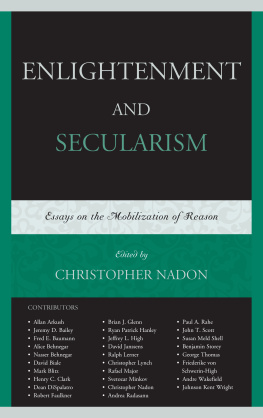
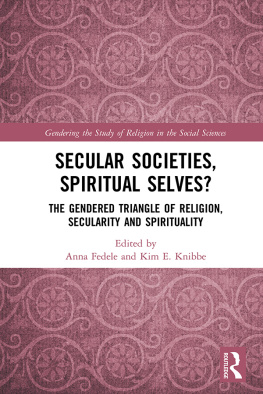

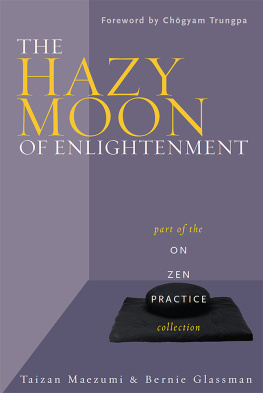
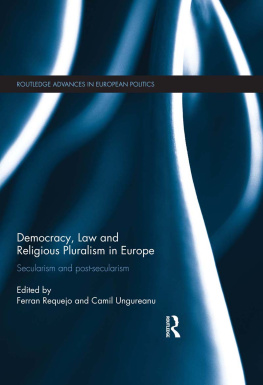

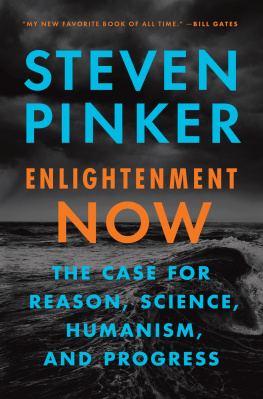
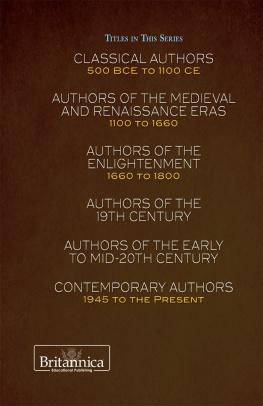
 TM The paper used in this publication meets the minimum requirements of American National Standard for Information Sciences Permanence of Paper for Printed Library Materials, ANSI/NISO Z39.48-1992.
TM The paper used in this publication meets the minimum requirements of American National Standard for Information Sciences Permanence of Paper for Printed Library Materials, ANSI/NISO Z39.48-1992.